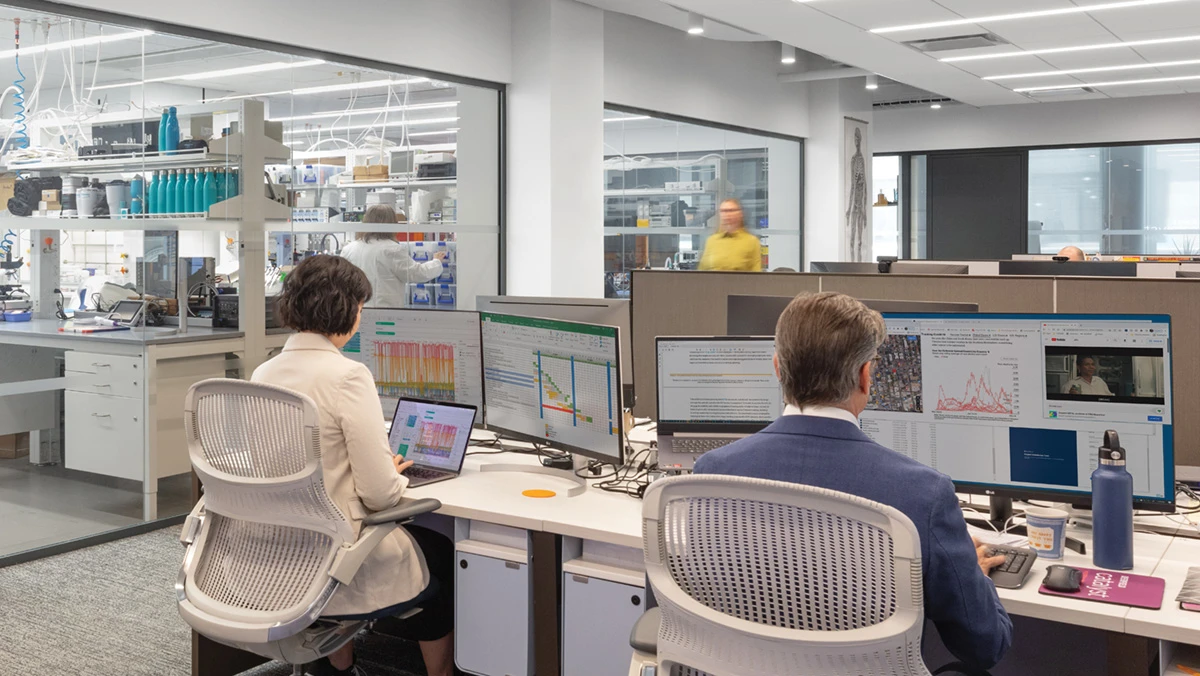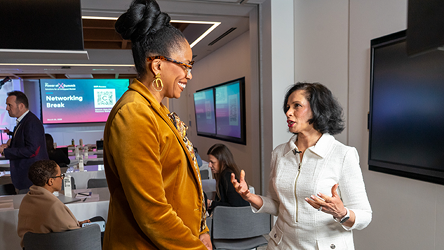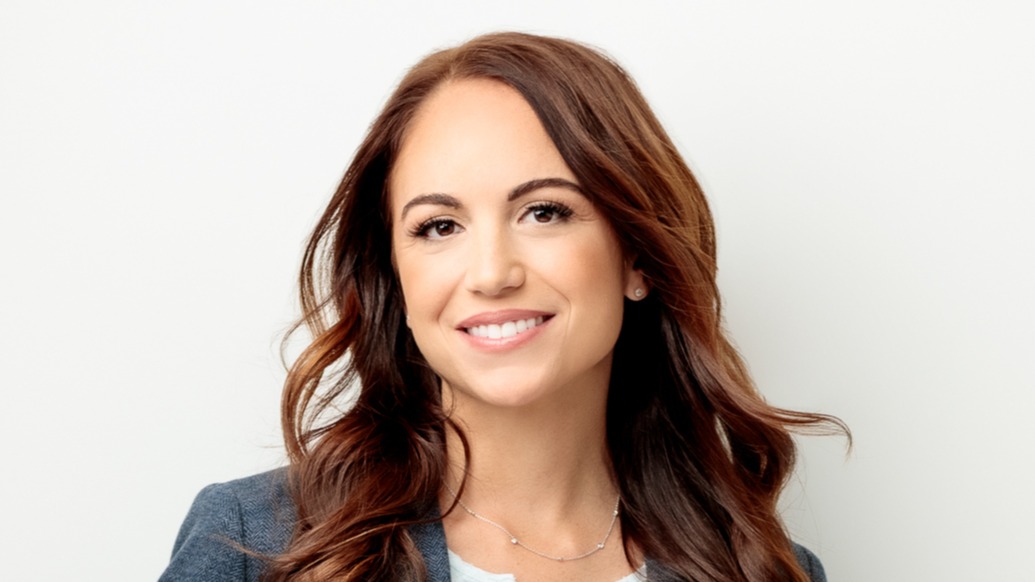August 29, 2025
Article
How BioLabs@NYULangone Builds a Launchpad for Life Science Startups

Overview
With more than $2.5 billion raised since 2019, BioLabs@NYULangone is giving healthcare entrepreneurs the tools, capital access, and collaborative ecosystem needed to accelerate innovation in life sciences.
Director Glennis Mehra helps founders turn bold ideas into therapies, diagnostics, and thriving businesses
Inside the shared labs of BioLabs@NYULangone, young companies are building the next generation of therapies and diagnostics. The incubator has helped more than 70 startups raise over $2.5 billion since 2019, creating a launchpad for healthcare entrepreneurs who are redefining how innovation gets done. Directing this ecosystem is Glennis Mehra, PhD, who guides founders through the hurdles of capital, regulation and growth.
Glennis Mehra, PhD, Director of BioLabs@NYULangone, a business incubator for startup life science companies, is passionate about bringing innovators together to advance therapeutics and diagnostics. At the foundation of BioLabs’ coworking space lies an evolving ecosystem of scientific entrepreneurs who are redefining the way they do business—through collaboration, rapid growth and unlocking new ways to maximize capital.
How Early Curiosity Sparked a Bioentrepreneur
Mehra fell in love with neurobiology research while studying neuroscience and biology at Wesleyan University. Fascinated with the interplay of biological systems and the aesthetics of the lab work, she fell “head over heels” with neurobiology. Shaped by her experience in New York City public school system’s gifted and talented programs, which continually inspired her to break barriers, Mehra decided to continue her foray into research at Columbia’s graduate school, where she went on to complete her PhD in neurobiology and behavior.
At Columbia, Mehra encountered amazing mentors and was part of an innovative environment that she felt very privileged to be a part of. Her inspiration knew no bounds.
“I felt that the questions I needed to ask needed to be very big questions,” Mehra said.
She focused on understanding why stem cells were giving rise to daughter cells and the intricacies of epithelial regeneration, the process by which damaged or lost epithelial tissue is replaced. She began using emerging technologies, including ultrasound-guided injections into mice and DNA microarrays. Such tools were foundational to advance functional genomics, a field dedicated to understanding the function of genes and their interactions within a cell or organism. DNA microarrays, for example, can capture snapshots of gene activity, such as mRNA levels, in different cells and tissues or under varying conditions.
“I knew that I wanted to focus on an expansive rather than a narrow view,” Mehra said.
Mehra began her professional career at Columbia University’s Technology Ventures, where she learned the business side of the life sciences. She received training that provided the rationale behind different business approaches and developed intellectual property strategies and valuation systems to help commercialize technologies developed by faculty in the biology and chemistry departments.
She then co-founded two startups in India: Catalyst 6, which developed technology-based health and wellness products for Indian consumers, and Saf Labs, which provided functional genomics and biology tools and services for research and clinical development. She also served as a director of the global life science consulting firm SPRIM to identify new acquisitions and generate new products.
Guiding Entrepreneurs at BioLabs@NYULangone
Since 2021, as director of BioLabs@NYULangone, Mehra spearheaded the complex processes that support life science entrepreneurs, from engaging in state and local government policies to help translate innovations into commercial products.
“We help with introductions to investors, as well as identify ways to navigate the ever-changing regulatory landscape, and much more. The hardest part is making sure everyone gets what they need, especially during challenging economic times when the entrepreneurs don’t have access to the capital they need,” Mehra said.
Mehra’s advice to entrepreneurs: “Take a step back, recognize what is truly your competitive edge, and lean into that.” Also look for opportunities to pivot and uncover cost savings, she explained. “Of course, entrepreneurs should also keep a steady focus on what they believe will be their breakthrough technology,” Mehra added.
BioLabs has become a powerful catalyst for success. Since 2019, the incubator has raised more than $2.5 billion for startups and hosted more than 70 companies. “I believe most of these companies would say we have been an additive part of their journey,” Mehra said.
For Mehra, the most rewarding part of her job is watching entrepreneurs overcome obstacles and succeed. She reflected passionately on the ebbs and flows that life science companies deal with, explaining that she becomes fascinated and fully embraces “the humanity of it all,” the challenges and achievements that these startups encounter and their perseverance.
“Of course, the science that is being undertaken, that I get to discuss and learn about, is incredibly rewarding, especially knowing that the impact they may have on the world will be overwhelmingly positive,” Mehra said.
Building Community and Impact Through Cure
Mehra is also a resident at Cure's headquarters in New York City, and a proud member of the Leadership Committee for the XSeed Award, which provides funding to early-stage New York City- based minority and women-led startups working on preclinical drug development. Cure is an affiliate of Deerfield Management, which founded and funds the award with support from the New York City Economic Development Corporation (NYCEDC).
“Cure has been foundational to helping the life science ecosystem in New York mature,” Mehra said. “It has been tremendous in terms of knowledge sharing and navigating the next steps and ways to overcome hurdles.”
“Cure has allowed young scientists and post-docs to imagine themselves in the role of founder or entrepreneur, inspiring a pipeline of new companies and people willing to take risks and harnessing their potential to change the world,” Mehra added.





